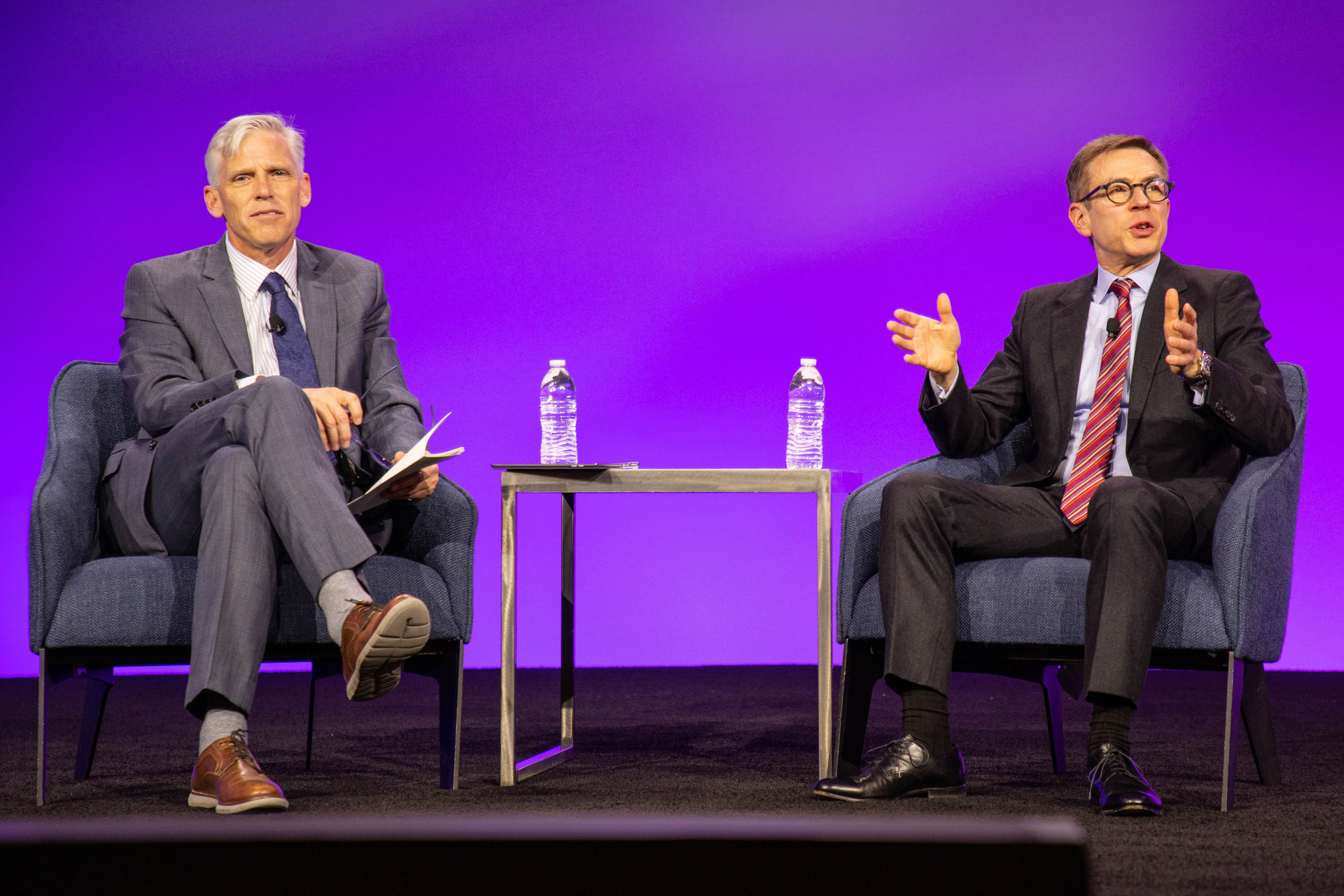Despite increased interest rates, the Federal Reserve consistently seeks to prevent recessions—not to cause them—according to a discussion about the U.S. economy during a lunch general session at Nareit’s REITworld: 2022 Annual Conference in San Francisco.
Nareit’s John Worth, EVP of research and investor outreach, sat down to discuss the global economic outlook with former Federal Reserve Governor Randall Kroszner, who currently serves at the University of Chicago Booth School of Business as the Norman R. Bobins professor of economics.
Kroszner said the probability of the U.S. entering a recession is “quite elevated,” but not 100% certain.
“Obviously monetary policy is contracting…interest rates have gone up at a record pace, and we’ve seen [that lead to] a dramatic transformation in the housing market over the last six months,” Kroszner said, noting though that it has not yet impacted the labor market.
Kroszner added that even those at the Federal Reserve who have been “doveish,” or wary about pushing up interest rates, have turned “hawkish” now due to the recent midterm elections and inflation expectations, meaning that if the Fed slows interest rates down too much, it runs the risk of losing credibility. Kroszner said that for the past 25 years, the Fed has been diligent in preventing recessions, in part because it often holds interest rates at a high level even when it’s “causing pain.”
“By moving very quickly while the unemployment rate is still below 4%, [the Fed has] been able to get to where they need to go,” he said. “As the employment rates starts to go up…either in December or the beginning of next year, the pressure is going to be very, very difficult for them to continue to raise rates.”
Worth asked Kroszner if the U.S. monetary policy adjustment was slow due to supply chain difficulties during the pandemic, and Kroszner stressed that supply chain issues can take years to work themselves out and that the Fed can’t take responsibility for them.
Turning to labor market impacts, Worth asked Kroszner about the debate between younger and older workers, and who might be missing and who has returned to the office.
“You might think that younger people would say, ‘I really do need to come into the office, because that’s how I learn’…but younger people have been one of the most adverse to going back into the office,” Kroszner said. “A lot of more experienced workers…have left the labor force. They’re saying, ‘I want to be able to spend time with my kids, my grandkids, or travel with my partner or spouse.’”
Worth wondered then how long it might take the Fed tightening to actually crack the labor market, and Kroszner said he believes they will stay at it until it does crack sometime in early 2023—but that the U.S. will likely still see sector labor shortages.
Kroszner said that a National Bureau of Economic Research dating committee determines if the U.S. is in a recession or not, and although the U.S. had back-to-back quarters of negative GDP numbers in Q1 and Q2 of 2022, underlying consumption remained “reasonably strong” during that time.
Kroszner added that the real estate industry plays a “super important role” in the measurement of inflation and that the Fed is closely monitoring the dramatic increase in rents over the past year.
To close the session, Worth asked Kroszner about how the perspective of MBA students has changed during his tenure as professor at the University of Chicago.
“There’s been an enormous transition,” Kroszner said. “Finance is no longer the largest concentration; entrepreneurship is the largest concentration. People want to go out on their own, and this also relates to work at home. … Younger people are much more interested in being their own boss, and having a lot more control over their lives.”
